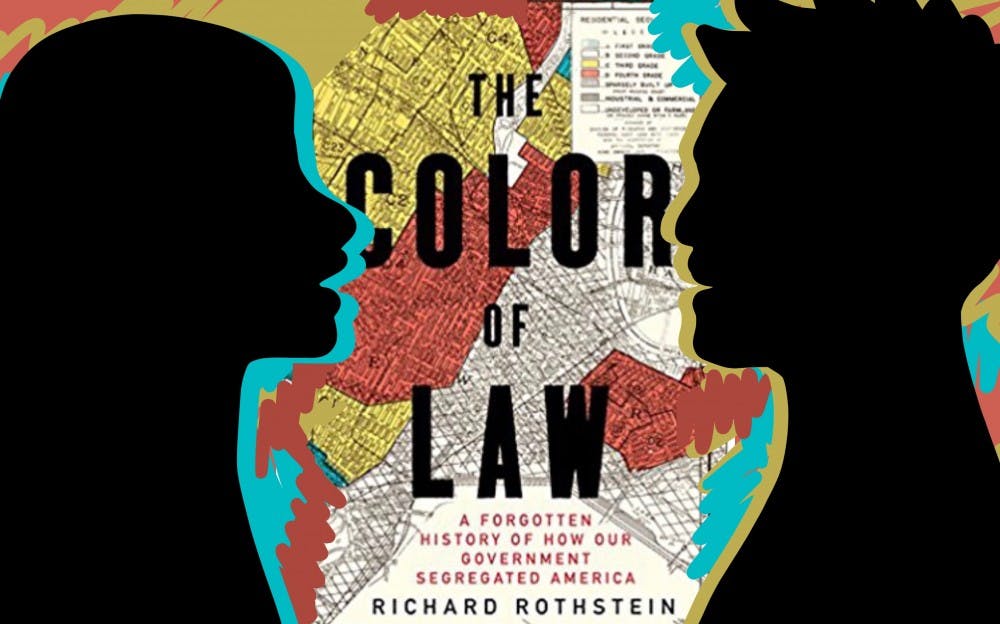The Center for the Study of Race and Democracy at ASU has created a new book discussion group based around “The Color of Law."
The book discussion group will be held once every month from September 2018 to March 2019. Participants must be 18 or older to attend and do not need to attend every meeting and are able to join in later discussions.
Richard Rothstein, the author of “The Color of Law,” wrote the book to address the myth that residential segregation was an accidental social construct.
“The truth is, the reason every metropolitan area in this country is segregated is that the federal government, with participation from the local and state governments, implemented racially explicit policies in the 20th century to ensure that African-Americans and whites could not live with one another,” he said.
Rothstein said Americans have yet to address this form of segregation because it is a way of rationalizing these housing policies by considering them accidents. Because of this, Rothstein said Americans should familiarize themselves with this issue.
“We have to acquaint ourselves with the history of how government created segregation, a history that was once well known, but is now forgotten,” he said.
Rothstein said the education system is not sufficiently teaching housing segregation and that misteaching this history in high schools will make it difficult for future generations.
“If the next generation doesn’t know this history any better than we’ve learned, they will be in a poor position to remedy it,” he said.
Rothstein recommended engaging with “The Color of Law” and discussing the issues brought up within the text with others in order to dispel the common misunderstandings of residential segregation.
“People who have read "The Color of Law" should be talking about it, and they should be encouraging others to read it,” Rothstein said. “They should be engaged in deep discussions about it.”
Erica Maxwell, the facilitator of the book discussion group, plans on looking into the history of this segregation within the discussion group and following its impact.
“It’s a way to have conversation around content that impacts our daily lives and engage in activities that really act as a catalyst for change,” she said.
Maxwell said there will be opportunities for guest speakers and activities throughout the group meetings.
“We take it by pieces so it’s not a one shot deal where we discuss the book in one session,” she said. “It’s so content-rich that it really demands activities, engagement and critical conversations around the content.”
Maxwell encourages college students to join the discussion group and educate themselves on the serious issue.
“ASU students should participate because it is a way to engage with others and the community while also really learning and getting historical perspectives on neighborhood segregation,” she said.
Ben Harrison and Mary Marcho were two participants at the first book discussion meeting on Sept. 29th and discovered during the meeting that they lived two blocks away from each other as children.
Harrison said the residential segregation policies kept the two apart from each other and they would not have crossed paths.
“It was like a line separating the black community from the white community,” he said.
Harrison said that as children they were unaware of the segregation, but their parents were. Segregation was not always clearly explained to them as children because it was just the situation they were in.
“We were just told ‘that’s where white people live and that’s where black people live’ — simple as that,” he said.
Marcho said she was also unaware of the residential and educational segregation, because she grew up only seeing segregated white areas. She said that prior to this book discussion group she did not know the governmental side of residential segregation.
“I had no idea the role of the law and the things the government was doing to enforce segregation,” Marcho said.
Harrison said part of Marcho's white privilege at the time was being unaware of the situation, because it did not impact her as directly.
“In the black community, that was a big deal for us, because it was about having access to something we didn’t have — something as simple as sitting at the counter and having a hamburger on Canal Street,” Harrison said.
Harrison and Marcho both said that knowing history can prevent individuals and future generations from repeating past mistakes.
“If you make uninformed opinions about why things are the way they are, then they will never change,” Marcho said.
Reach the reporter at hfoote1@asu.edu or follow @foote_hannah on Twitter.
Like State Press on Facebook and follow @statepress on Twitter.




